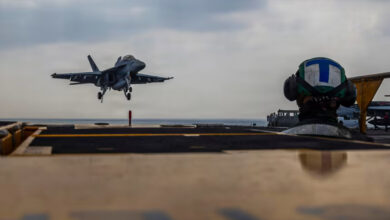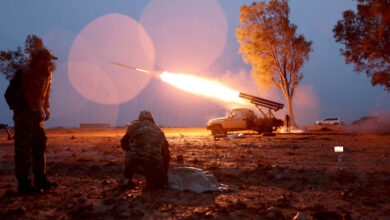
The Global Firepower Index (GFI) ranked Egypt’s military as the 11th most powerful worldwide ahead of Israel, Vietnam and Brazil, in a list of 127 countries with the most powerful military in the world for 2017.
The GFI criteria ranks the countries based on more than 50 factors, including each country’s military budget, its manpower, the amount of equipment each country has in its respective arsenal and its natural resources.
Based on these factors, the report listed Egypt as the 11th most powerful military, having a military budget worth only $4.4 billion, in contrast to the US military budget of US$587 billion.
Egypt, however makes up for its low budget with a sweeping 1,270,000 active personnel, compared to Vietnam’s first place number of 5,455,000 personnel. Egypt also owns 4,110 tanks, more than of Israel which has 2,620 tanks.
As of June 4, GFI ranked Egypt’s military as the strongest in the MENA region, followed by Israel which ranks 15th in the world.
According to the report, Egypt owns 13,949 armored fighting vehicles, 889 self-propelled guns, 2,360 towed artillery, and 1,481 multiple-launch rocket systems.
Additionally, the country’s air prowess includes: 46 attack helicopters, 257 helicopters, 384 trainer aircraft, 260 transport aircraft, 427 fixed-wings attack aircraft, and 337 fighters.
As for naval power, Egypt owns 319 in total of naval strength, 23 mine warfare, 227 coastal defense craft, five submarines, two corvettes, and nine frigates.
The report also covers Egypt’s oil production, stating that it produces 478,400 bbl/day with proven oil reserves of 4,400,000,000 bbl.
The index also highlighted each country’s highest criteria, listing the US as the world’s most powerful military and scoring it first for the number of aircraft (13,762), aircraft carriers (19) and submarines (70). Russia, however, scored first with the number of tanks at 20,216.
The index, however, is considered to be flawed for various reasons; Business Insider previously reported that it seems to be relying heavily on quantity rather than quality.
“It’s important to note that the index focuses on quantity while ignoring significant qualitative differences. For example, North Korea’s 70 submarines are old and decidedly low-tech, compared to what the US and others have,” said the Business Insider in March, commenting about the 2016 report.
“The index doesn’t take into account nuclear stockpiles, which are still the ultimate trump card in geopolitics. And it doesn’t penalize landlocked nations for lack of a standing navy,” it concluded then.




